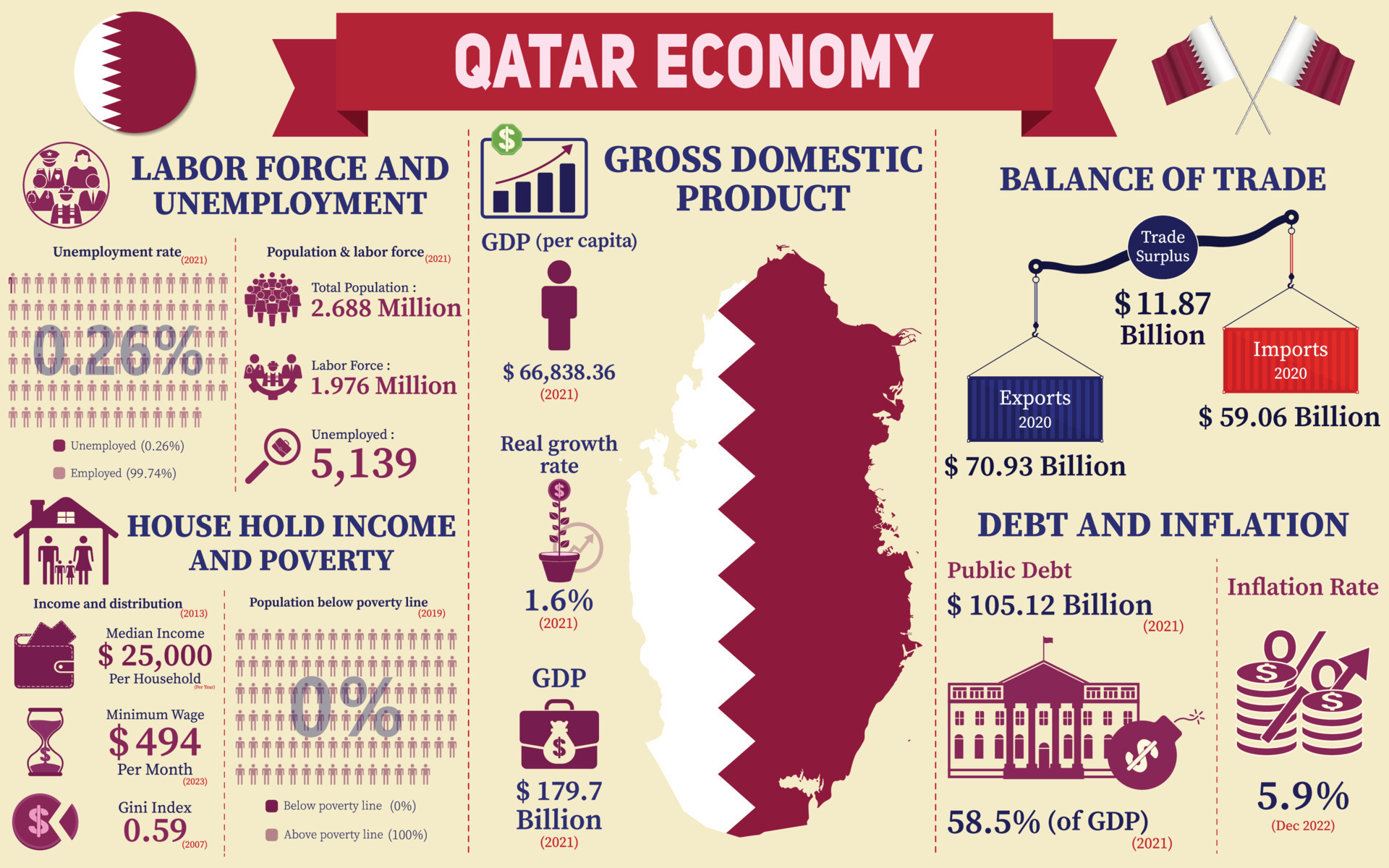Qatar's economic outlook is brightening, with a projected rise in GDP growth fueled by the strength of its non-energy sectors. According to a recent report by the Institute of Chartered Accountants in England and Wales (ICAEW), the country's GDP is expected to reach 2. 2% this year and climb further to 2. 9% in 2025. This positive outlook comes despite a slowdown in the broader Gulf Cooperation Council (GCC) region due to extended oil production curbs.
The ICAEW report, titled "Economic Insight" for the Middle East, highlights the resilience of Qatar's non-energy sectors, which are acting as a buffer against the constraints on oil production. This resilience contrasts with the revised GCC growth forecast, which has been trimmed down to 2. 2% from a previous estimate of 2. 7%.
While the entire GCC region grapples with oil production limitations set by OPEC+, Qatar benefits from its exemption from these quotas. This allows the country to prioritize its significant natural gas reserves, particularly the ongoing expansion of the North Field project. The ICAEW report emphasizes the positive medium-term impact this project is expected to have on Qatar's economy.
Bahrain, another GCC member state, is also working towards economic diversification to lessen its dependence on oil revenue. While its non-oil sector grew by an impressive 3. 4% last year, accounting for nearly 84% of its GDP, the ICAEW report predicts a slowdown for Bahrain in 2025. Its GDP growth is expected to reach 3. 1% this year but is likely to dip to 1. 4% in the following year.
Qatar's economic fortitude is further bolstered by positive high-frequency data across the GCC's non-energy sectors. This data indicates continued growth and suggests a promising future for these sectors throughout the region. The ICAEW report paints a cautiously optimistic picture, acknowledging the current slowdown but highlighting the potential for a robust rebound driven by diversification efforts.
With its robust non-energy sector and strategic gas production plans, Qatar appears well-positioned to navigate the current economic climate and achieve sustained economic growth in the coming years. The country's exemption from OPEC+ restrictions and its focus on developing its gas reserves provide a significant advantage as it seeks to solidify its economic standing.

